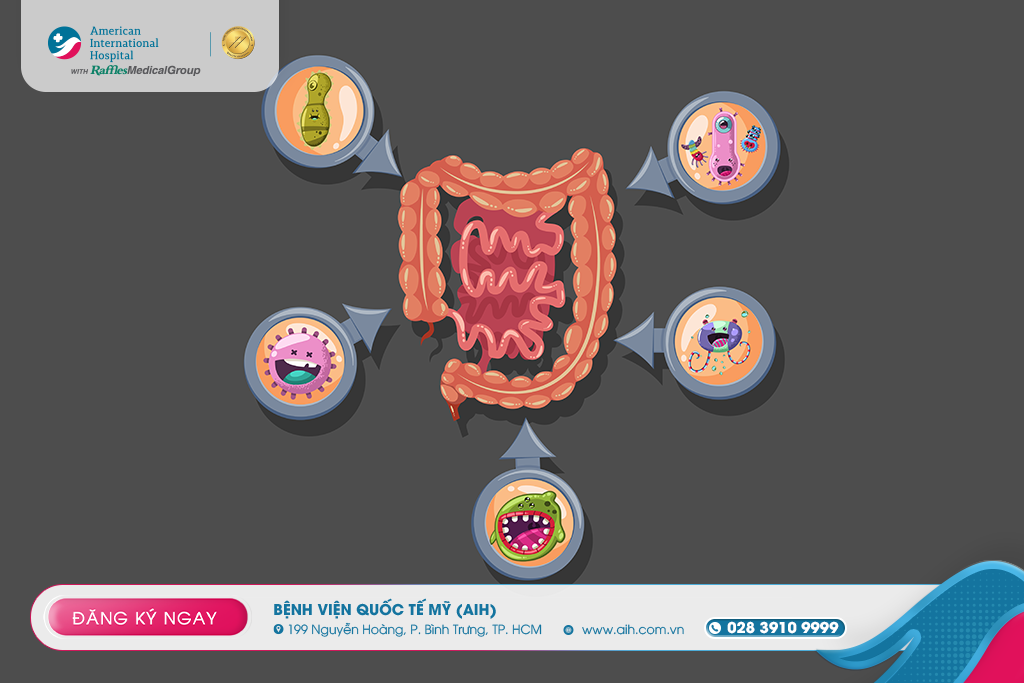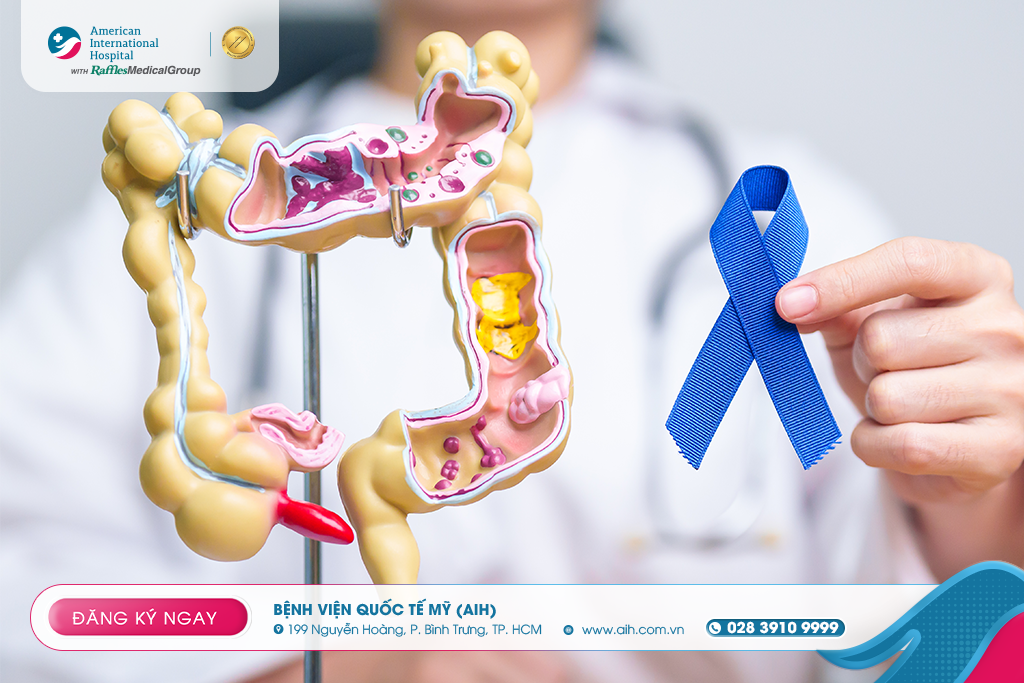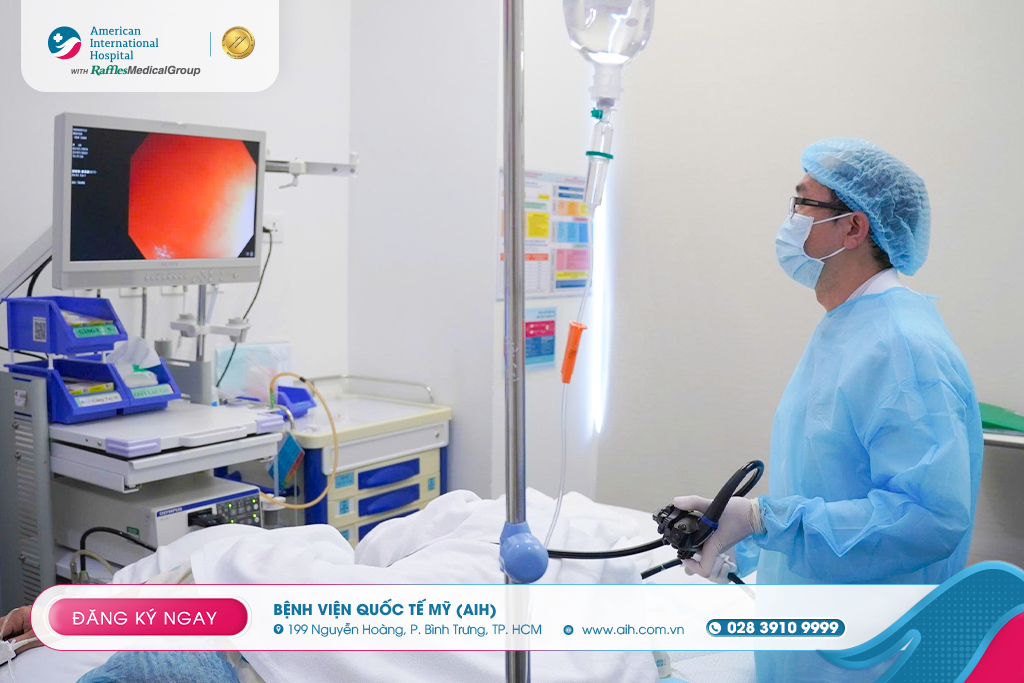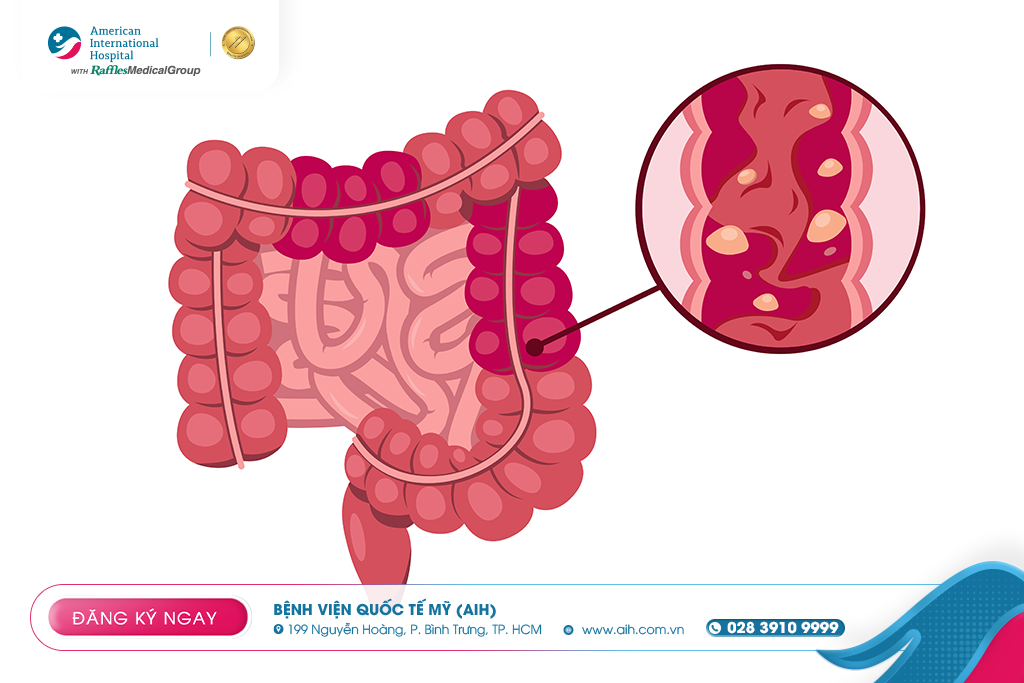Notification
Please fill in the information below
Urgent
COLON POLYPS – THE “SILENT TUMORS” THAT CAN PREVENT CANCER
Colorectal cancer is among the most common cancers worldwide, and in most cases, it originates from an initially believed “benign” lesion – a colon polyp. The majority of colon cancers develop from polyps. The good news is that if polyps are detected and removed in time, the risk of progression to cancer can be significantly reduced.
Regular screening for colon polyps through gastrointestinal endoscopy plays a crucial role in cancer prevention. Endoscopy not only helps detect small polyps that are difficult to observe using other methods but also allows doctors to remove them during the same procedure. Thanks to the advancement of modern endoscopic techniques – which are minimally invasive, safe, and precise – patients today have more opportunities to protect their digestive health and prevent colorectal cancer from its earliest stages.
What Are Colon Polyps?
Colon polyps are small, abnormal tissue growths that form on the inner mucosal lining of the colon or rectum.
A person may have a single polyp or multiple polyps at the same time.
In the early stages, polyps usually cause no symptoms, so many people are unaware of their presence until they are incidentally detected during endoscopy.
The larger the polyp, the higher the risk of malignancy: polyps larger than 1 cm have a greater likelihood of developing into cancer.
Classification and Risk of Colon Polyps
Not all polyps are the same. Based on histological characteristics, polyps are classified into different types with varying degrees of malignant potential:
Hyperplastic polyp: Usually benign and rarely progresses to cancer.
Tubular adenoma: The most common type, with a low malignant potential (around 2% if larger than 1.5 cm).
Villous adenoma: Carries a higher risk of malignancy, up to about 40%.
Tubulovillous adenoma: Has an intermediate risk (approximately 20–25%).
Sessile serrated adenoma: Often difficult to detect by standard endoscopy but carries a significant risk of cancer.

This highlights that no type of polyp should be taken lightly, as only histopathological examination after removal can determine the true level of risk.
Who Is at Risk of Developing Colon Polyps?
According to experts, several factors can increase the risk of developing colon polyps and cancer:
Age: Most found in individuals over 50 years old.
Family history: Having close relatives with colon polyps or colon cancer.
Unhealthy lifestyle: Diets low in fiber and high in red meat, frequent alcohol consumption, and smoking.
Related medical conditions: Chronic ulcerative colitis or inherited syndromes such as FAP (Familial Adenomatous Polyposis).
How Do Polyps Turn Into Cancer?
This process often occurs silently over 5–10 years. It begins with a small benign polyp, then genetic mutations gradually accumulate, transforming it into a precancerous lesion and eventually invasive cancer.
Therefore, early detection and removal of polyps is the “golden key” to preventing colon cancer before it even begins.

Who Should Have Regular Colonoscopy Screenings?
Individuals aged 50 and above should undergo periodic colonoscopy.
Those with a family history or high-risk factors should start screening earlier (from age 40).
In addition to endoscopy, fecal occult blood tests can be used for screening; however, if the result is positive, endoscopy is mandatory for confirmation.
Warning Signs to Watch For
Most colon polyps cause no symptoms. However, if you experience any of the following signs, you should seek medical attention promptly:
Persistent changes in bowel habits (unusual diarrhea, constipation).
Passing blood or having blood in the stool.
Abdominal pain, persistent bloating.
Unexplained weight loss.
Iron-deficiency anemia, which may suggest chronic bleeding from a polyp or cancer.

Detection and Treatment of Colon Polyps at American International Hospital (AIH)
At American International Hospital (AIH), the detection and management of colon polyps are performed according to international standards, prioritizing safety, accuracy, and minimally invasive techniques.
Detection Methods of Colon Polyps
Flexible gastrointestinal endoscopy: The most effective method to detect polyps, allowing doctors to directly visualize the entire colon lining.
Mildly sedated endoscopy: Ensures a comfortable, painless, and anxiety-free experience for patients during the procedure.
Advanced imaging technologies (HD and Narrow Band Imaging – NBI): Enhance the visibility of small, flat, or hard-to-detect polyps.
Regular screening: Strongly recommended for individuals over 50 years old or those with a family history of colorectal polyps or cancer.

Treatment of Colon Polyps
Endoscopic polypectomy: Most polyps can be safely removed during endoscopy using an electrosurgical snare or biopsy forceps.
Endoscopic mucosal resection (EMR) and endoscopic submucosal dissection (ESD): Applied for large, flat, or potentially malignant polyps. These techniques allow complete removal of the lesion while preserving the colon.
Histopathological evaluation: All removed polyps are sent for pathological examination to determine whether they are benign or precancerous.
Surgical intervention: Indicated for polyps that are too large, technically difficult to remove endoscopically, or show invasive malignancy.
Advantages of Treatment at AIH
A team of highly experienced gastroenterologists with advanced professional training.
State-of-the-art endoscopy equipment ensuring high-definition imaging and maximum safety.
International-standard anesthesia and recovery protocols, providing a comfortable experience.
Comprehensive post-procedure care, including follow-up and regular screening guidance.
With these strengths, American International Hospital (AIH) not only provides effective treatment for colon polyps but also plays a vital role in the prevention of colorectal cancer – one of the most common and life-threatening cancers today.
Reference:
--------------------
Search
Latest News
Our Doctor






































































Leave a comment